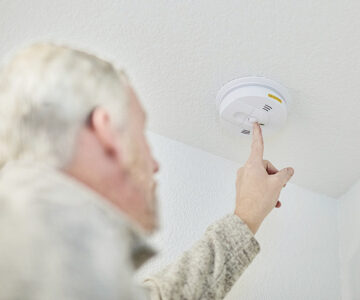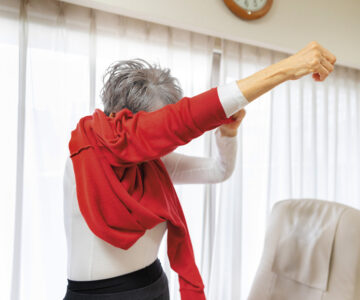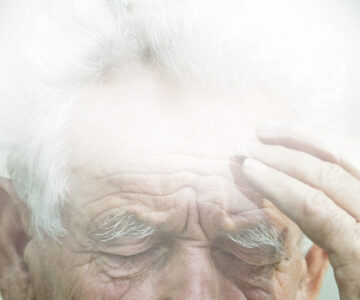Riding the Medical Merry-Go-Round
In addition to rest, nutrition and exercise, medical and tune-up appointments are a necessity to keep aging bodies in good (enough) shape.
My new hobby is going to the doctor.
It begins with an appointment with my GP, which is inevitably followed by a referral to a specialist, as well as appointments for tests or lab work, and then a trip back to my GP’s office for a report on the results. Add to this sessions with the osteopath, massage therapist, audiologist, podiatrist and more, including a somatic therapist, who is helping me explore my mind-body connection.
As you may have guessed, I’ve hit my ninth decade running – well, strolling – and these medical rounds are my new reality.
Wasn’t it just yesterday that the rhythms of my week were determined by activities such as connecting with friends for long bike rides, usually incorporating lunch or dinner on a patio somewhere; or a game of bridge with lots of lively chatter; or hikes along the Bruce Trail; or overnight catch-ups with family or friends in the GTA?
My medical and tune-up appointments are intended to keep this aging body in good enough shape to continue living a full and generous life. But they take so much time that other activities have fallen by the wayside.
And they’re costly – not just in the financial sense, but also in time spent worrying about the next appointment and, post-appointment, worrying about the outcome.
Times two if you live with a spouse.
I do count my blessings. And I know my challenges are minuscule compared with those of many of my peers. But it can all be somewhat exhausting, both mentally and physically.
As a result, I’ve lately become somewhat obsessed with monitoring my sleep. My Fitbit tracks each night’s statistics by producing a very cool and colourful graph that breaks out how my sleep patterns shift during the hours I spend in bed. Checking how I did the night before has become one of the first things I do every morning.
A recent graph showed I was awake for about 76 minutes, or 15 per cent of my total time in bed, which seems fairly normal for me. As I do most nights, I spent nearly five hours, or 57 per cent of the time, in a state of light sleep, which promotes mental and physical health. A 15 per cent chunk was spent in deep sleep, which helps with physical recovery and aspects of memory and learning, and the remaining 13 per cent was devoted to REM – rapid eye movement – sleep, when dreams are more vivid and the heart rate is elevated, important for memory and mood.
Combined, these statistics earned me a “good” mark from Fitbit, accompanied by a smiley face. That started my day off positively.
Current wisdom suggests adults need between seven and nine hours of sleep a night. Using a car analogy, a recent New York Times article noted the mechanics of sleeping can get a bit rusty with age. Older adults are likely to take longer to fall asleep, wake up more frequently, and spend more time napping during the day. Researchers have also found links between poor sleep and depression, loneliness, anxiety, stress and grief in older adults.
Medications commonly used by the older set, such as diuretics to control blood pressure, can lead to more nighttime bathroom trips. And gaining weight increases the risk of sleep apnea, causing snoring, gasping for air and feeling like you’re choking.
The good news is that the same habits that promote general good health – and fewer trips to the doctor – can also lead to better quality sleep. A healthy diet, exercising regularly, avoiding naps and caffeine in the afternoon, and going to bed at the same time every night are all things that can promote good sleep. Checking that your current medications remain right for you is also a good idea.
Spending time in sunlight is another way to help maintain the body’s circadian rhythms in balance. And avoid watching that last Netflix episode right before hitting the hay, likewise that last phone scroll. The blue light produced by computer screens and LED TVs interferes with the transition from wakefulness to sleep. Instead, to help prepare for sleep, create an unwind routine, such as reading a book. A friend of mine does a gentle 10-minute qigong routine before bed. She reports this ancient Chinese practice helps her sleep better and feel less stiff in the morning.
A good night’s sleep may not be the only route to good health and graceful aging, but at the very least it can help maintain the stamina we need to stay on top of our busy appointment schedules.
Related Stories

Home Safety Tips for Seniors
Nov 27, 2023 | | Over the Next HillThere are many steps older adults can take to prepare for the unexpected and avoid unhappy accidents.

The Dressing Dilemma
Sep 8, 2023 | | Over the Next HillWriter Gail Grant explores the physical complexities of getting clothes onto an aging body.

Brain Fog: How to Clear the Covid Hangover
Jun 16, 2023 | | Over the Next HillGail Grant examines how the disruptions of the pandemic led to a flatline of interactions, leaving our brains sluggish and our tongues tied.

“Speak to me, Alexa”
Mar 20, 2023 | | Over the Next HillIt’s a struggle to make friends with new technology.






